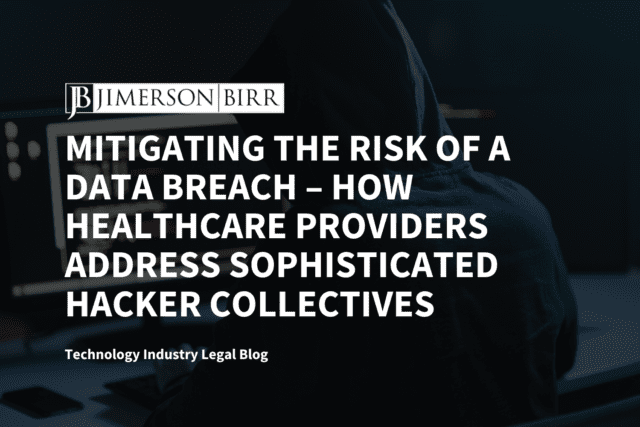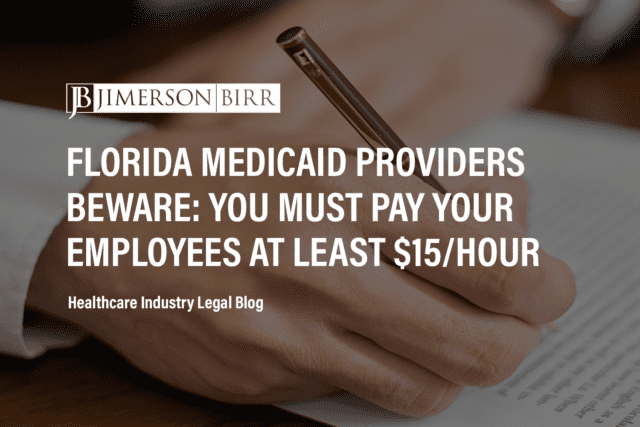How does anti-kickback, Stark laws, self-referral, and fee-splitting compliance affect companies?
Anti-kickback, Stark laws, self-referral, and fee-splitting compliance significantly impact companies operating in the healthcare industry, particularly those involved in providing services, supplies, or facilities reimbursable by federal healthcare programs like Medicare and Medicaid. These regulations aim to ensure ethical conduct, prevent conflicts of interest, and maintain the integrity of healthcare delivery and payment systems.
To adhere to anti-kickback laws, companies must implement strict policies and procedures to prevent any form of remuneration or inducement in exchange for referrals. Stark laws prohibit physicians from referring patients to entities with which they have financial relationships, unless specific exceptions apply. Additionally, sharing fees or profits from patient referrals is strictly prohibited under anti-kickback laws and may also violate Stark laws. Companies must structure their arrangements carefully to avoid any appearance of improper financial incentives tied to referrals.
Violations can lead to severe consequences, including substantial fines, exclusion from participation in federal healthcare programs, civil monetary penalties, and even criminal prosecution. Additionally, non-compliance tarnishes a company’s reputation and can lead to loss of trust among patients, healthcare providers, and regulatory authorities.
Need help regarding supply chain contracting, including anti-kickback, Stark laws, self-referral, and fee-splitting?
Schedule your consultation today with a top healthcare attorney.
In Florida, which laws and regulations apply to kickbacks, Stark laws, self-referrals, and fee-splitting?
In Florida, healthcare companies must adhere to both federal laws and state regulations regarding kickbacks, Stark laws, self-referrals, and fee-splitting compliance. While federal laws such as the Anti-Kickback Statute and Stark Law apply nationwide, Florida may also have additional statutes or regulations that healthcare companies must comply with. Here’s an overview of how these regulations apply in Florida: · Anti-Kickback Statute (AKS): This is a federal criminal statute that prohibits the exchange (or offer to exchange), of anything of value, in an effort to induce (or reward) the referral of business reimbursable by federal health care programs. Florida has a similar anti-kickback statute found here. · Stark Law: This federal law prohibits physicians from referring patients to receive “designated health services” payable by Medicare or Medicaid from entities with which
the physician or an immediate family member has a financial relationship, unless an exception applies. Florida has a similar law prohibiting self-referrals found here. · Florida Statute, Section § 456.054: This Florida law prohibits a physician group practice from paying an employee to induce him or her to refer patients to the group for ancillary or other services.
What are common issues regarding kickbacks, Stark laws, self-referrals, and fee-splitting that lead to litigation?
Several common issues regarding kickbacks, Stark laws, self-referrals, and fee-splitting can lead to litigation for healthcare companies. These issues often arise due to ambiguous regulatory interpretations, complex business arrangements, and evolving enforcement priorities. Some common issues include:
· Financial Relationships and Arrangements: Litigation can arise when healthcare companies enter into financial relationships or arrangements with physicians, hospitals, or other entities that may violate anti-kickback or Stark laws. This includes situations where compensation is based on the volume or value of referrals, rather than fair market value for legitimate services rendered.
· Improper Inducements and Kickbacks: Cases may arise when healthcare companies offer or receive kickbacks, bribes, or other improper inducements in exchange for patient referrals or the purchase of goods and services reimbursable by federal healthcare programs. These inducements may take various forms, including cash payments, gifts, discounts, or free services.
· Self-Referral Violations: Litigation can result from self-referral violations, where physicians refer patients to entities with which they have financial relationships, in violation of Stark laws or state self-referral regulations. This can occur in scenarios involving physician-owned practices, diagnostic imaging centers, laboratories, or other healthcare facilities.
· Fee-Splitting Arrangements: Cases may arise when healthcare companies engage in fee-splitting arrangements, where fees or profits from patient referrals are shared among healthcare providers in violation of anti-kickback laws or state regulations. Fee-splitting arrangements can involve direct financial incentives or disguised forms of compensation.
· Lack of Compliance Programs and Oversight: Litigation risks increase when healthcare companies fail to implement robust compliance programs or oversight mechanisms to ensure adherence to anti-kickback, Stark laws, self-referral, and fee-splitting regulations. Inadequate training, monitoring, and auditing can lead to inadvertent violations and legal liability.
· False Claims Act Allegations: Allegations of submitting false claims for reimbursement to federal healthcare programs may accompany violations of anti-kickback, Stark laws, self-referral, or fee-splitting regulations. Whistleblower lawsuits under the False Claims Act can result in significant financial penalties and reputational damage for healthcare companies.
· Government Investigations and Enforcement Actions: Healthcare companies may face litigation as a result of government investigations and enforcement actions initiated by agencies such as the Department of Justice (DOJ), Office of Inspector General (OIG), or state Medicaid Fraud Control Units (MFCUs). These investigations can lead to civil or criminal charges, settlements, and corporate integrity agreements.
We are value-based attorneys at Jimerson Birr, which means we look at each action with our clients from the point of view of costs and benefits while reducing liability. Then, based on our client’s objectives, we chart a path to seek appropriate remedies. To determine whether your unique situation may necessitate litigation, please contact our office to set up your initial consultation.
What steps should businesses take to minimize the risk of litigation over kickbacks, Stark laws, self-referrals, and fee-splitting?
To minimize the risk of litigation over kickbacks, Stark laws, self-referrals, and fee-splitting, healthcare businesses should take several proactive steps:
· Develop and Implement Comprehensive Compliance Programs: Establishing robust compliance programs tailored to the specific risks of anti-kickback, Stark laws, self-referral, and fee-splitting is crucial. These programs should include written policies and procedures, employee training, regular auditing, and monitoring to ensure adherence to regulations.
· Conduct Regular Compliance Audits and Monitoring: Regularly audit business practices, financial relationships, and referral patterns to identify and address potential compliance issues proactively. Implement monitoring systems to track referrals, financial arrangements, and other activities that may raise compliance concerns.
· Ensure Transparency in Financial Relationships: Maintain transparency in financial relationships with physicians, hospitals, and other entities by disclosing any financial arrangements or conflicts of interest. Ensure that compensation arrangements comply with fair market value standards and are not based on the volume or value of referrals.
· Seek Legal Guidance and Compliance Expertise: Consult with healthcare attorneys and compliance experts knowledgeable about anti-kickback, Stark laws, self-referral, and fee-splitting regulations. Seek guidance on structuring business arrangements, reviewing contracts, and navigating complex compliance issues to mitigate legal risks.
· Educate and Train Employees: Provide comprehensive training and education to employees, physicians, and other stakeholders on compliance requirements, ethical practices, and regulatory obligations. Empower employees to recognize potential compliance issues and report concerns through established channels.
· Establish Clear Policies and Procedures: Develop clear policies and procedures outlining acceptable business practices, financial arrangements, and referral processes. Ensure that employees understand their obligations under anti-kickback, Stark laws, self-referral, and fee-splitting regulations and have access to resources for compliance guidance.
· Monitor Regulatory Changes and Enforcement Trends: Stay informed about changes in federal and state regulations, guidance, and enforcement priorities related to anti-
kickback, Stark laws, self-referral, and fee-splitting. Monitor industry trends and legal developments to adapt compliance strategies accordingly.
· Implement Internal Controls and Oversight Mechanisms: Implement internal controls and oversight mechanisms to detect and prevent potential violations of anti-kickback, Stark laws, self-referral, and fee-splitting. Establish channels for reporting compliance concerns and investigate allegations promptly.
· Respond Promptly to Compliance Concerns: Take prompt and appropriate action to address compliance concerns, investigate allegations, and implement corrective measures as needed. Demonstrate a commitment to ethical conduct and regulatory compliance throughout the organization.
Frequently Asked Questions
What are the penalties for violating laws prohibiting kickbacks, Stark laws, self-referrals, and fee splitting?
Violations of these regulations can result in severe penalties, including fines, exclusion from federal healthcare programs, civil monetary penalties, and criminal prosecution. Healthcare companies may also face legal liability, reputational damage, and loss of trust among patients and regulatory authorities.
How do regulatory agencies enforce laws prohibiting kickbacks, Stark laws, self-referrals, and fee splitting?
Regulatory agencies such as the Department of Justice (DOJ), Office of Inspector General (OIG), Centers for Medicare & Medicaid Services (CMS), and state Medicaid Fraud Control Units (MFCUs) enforce compliance through investigations, audits, whistleblower complaints, and legal actions.
Where can healthcare providers and businesses find resources and guidance on kickbacks, Stark laws, self-referrals, and fee-splitting compliance?
Resources and guidance on compliance are available from regulatory agencies, industry associations, legal firms specializing in healthcare law, online training programs, and compliance consultants. Additionally, healthcare providers and businesses can refer to official statutes, regulations, and advisory opinions issued by regulatory agencies.
What should healthcare providers and businesses do if they suspect potential violations of laws prohibiting kickbacks, Stark laws, self-referrals, and fee splitting?
Healthcare providers and businesses should promptly investigate and address compliance concerns, seek legal guidance, self-disclose violations when appropriate, and take corrective action to prevent future violations.
Have more questions about anti-kickback, Stark laws, self-referral, or fee-splitting?
Crucially, this overview of kickbacks, Stark laws, self-referrals, and fee-splitting does not begin to cover all the laws implicated by this issue or the factors that may compel the application of such laws. Every case is unique, and the laws can produce different outcomes depending on the individual circumstances.
Jimerson Birr attorneys guide our clients to help make informed decisions while ensuring their rights are respected and protected. Our lawyers are highly trained and experienced in the nuances of the law, so they can accurately interpret statutes and case law and holistically prepare individuals or companies for their legal endeavors. Through this intense personal investment and advocacy, our lawyers will help resolve the issue’s complicated legal problems efficiently and effectively. Having a Jimerson Birr attorney on your side means securing a team of seasoned, multi-dimensional, cross-functional legal professionals. Whether it is a transaction, an operational issue, a regulatory challenge, or a contested legal predicament that may require court intervention, we remain tireless advocates at every step. Being a value-added law firm means putting the client at the forefront of everything we do. We use our experience to help our clients navigate even the most complex problems and come out the other side triumphant.
If you want to understand your case, the merits of your claim or defense, potential monetary awards, or the amount of exposure you face, you should speak with a qualified Jimerson Birr lawyer. Our experienced team of attorneys is here to help. Call Jimerson Birr at (904) 389-0050 or use the contact form to schedule a consultation.

We live by our 7 Superior Service Commitments
- Conferring Client-Defined Value
- Efficient and Cost-Effective
- Accessibility
- Delivering an Experience While Delivering Results
- Meaningful and Enduring Partnership
- Exceptional Communication Based Upon Listening
- Accountability to Goals











